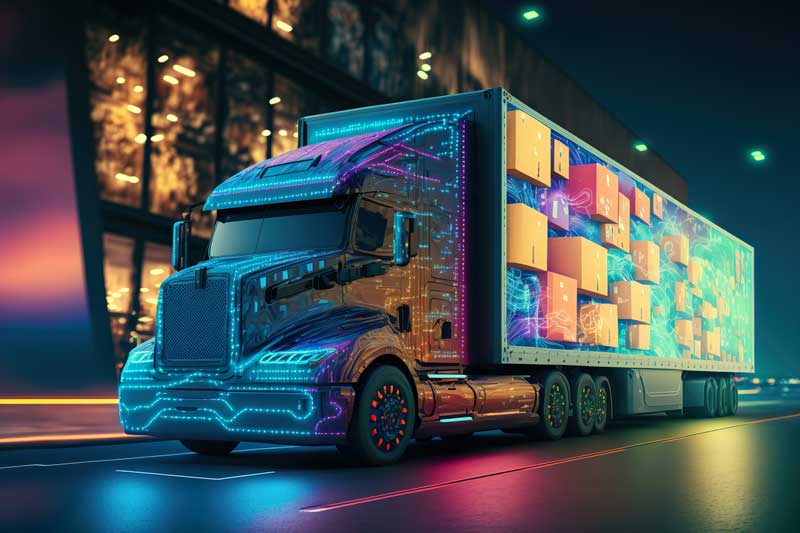Artificial Intelligence (AI) has played a role in the supply chain for years. Like any technology, though, it continues to grow, and that can lead to more opportunities. As the technology improves, and awareness about what exactly AI can do increases, people are looking at AI and its role within all industries with a new set of eyes.
It comes at an important time in particular for the supply chain industry, as after a period of disruption after disruption, organizations are putting more emphasis on quickly analyzing data and making better decisions. Here’s a look at the ways AI is already established in supply chain analytics, and how it might be used moving forward.
How AI has been used
AI has been used in a number of ways in the supply chain industry over the years. It can help organizations make sense of massive amounts of data, and with information coming from countless sources in any given supply chain, it is an essential part of how companies can make any sense of the data. Word is getting out – one report predicts that AI software will be worth more than $17 billion by 2028, citing the fact that AI-enabled supply chains are 67% more effective than those that don’t use AI.
AI is used in everything from inventory management to predicting operational results. It allows for end-to-end visibility, which can help organizations map the most cost-effective delivery routes, playing out a variety of scenarios that take into account possible weather problems or other disruptions. It can also be used for customer service, providing answers to customer questions based on previous conversations, whether through a chatbot or through a script for an employee. Some organizations use AI for predictive maintenance, getting alerts to potential problems and necessary repairs in a proactive way rather than reacting to a problem once it’s too late. Others use it to assess product quality, allowing for faster manufacturing.

The future of AI
AI has been getting a lot of attention recently because of the generative AI capabilities of ChatGPT. It is only natural that supply chain companies begin to wonder what generative AI can do for their organizations.
The answer is not unlike what AI has done in the past: it has the potential to make otherwise complicated tasks much easier. Take, for instance, trying to track a necessary part through a complex supply chain. Through a series of questions to a generative AI service, it could be possible to cut down how long it takes to find the proverbial needle in the haystack.
It is also possible that generative AI can help an organization make sure that everyone it works with within its supply chain reflects similar values. Similar to tracking parts, questions can lead to generative AI providing an assessment of risk associated with different organizations a company may be working with within its supply chain. It is also possible that generative AI can be used to help an organization meet its environmental, social, and governance (ESG) goals by giving more detailed information about possible customers and suppliers. In both cases, organizations can go through the information provided by AI more easily, eliminating companies that don’t align with their values, and picking out the ones that do.
Works well with others
Like anything else in the field of business intelligence, artificial intelligence is only as good as the data it is working with. At its best, AI can help an organization make better data-driven decisions, whether that’s during a time of disruption or business as usual. It can help cut costs, and it can produce outcomes more quickly than someone working to crunch numbers off a spreadsheet. But if no one is doing anything with the information AI provides, it’s not going to be very helpful.
In other words, AI doesn’t add much to the supply chain by itself. It is a tool that helps the workforce do their jobs better. But it is a powerful tool, and one that has the potential to become even more effective in time.
That’s the interesting thing about AI and predictive analytics. It can make predictions for your business based on the historical data it is given, but it’s hard to predict what exactly the future is for AI in industries like logistics. The path it is on right now leads to some reasonable expectations that can produce certain business outcomes. But there could be a development that changes where AI is headed in the industry, and in that case its future uses could be something we haven’t even thought of yet.
- What Data Can Bring to California’s Investment in its Ports - July 25, 2024
- Unlocking the Power of Data in the Utilities Industry - July 18, 2024
- How Analytics Can Help Your Wholesale Nursery Grow - July 17, 2024




